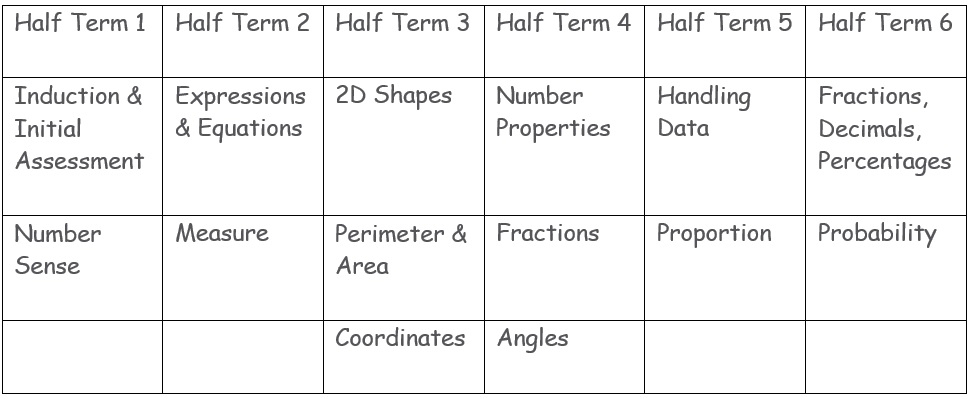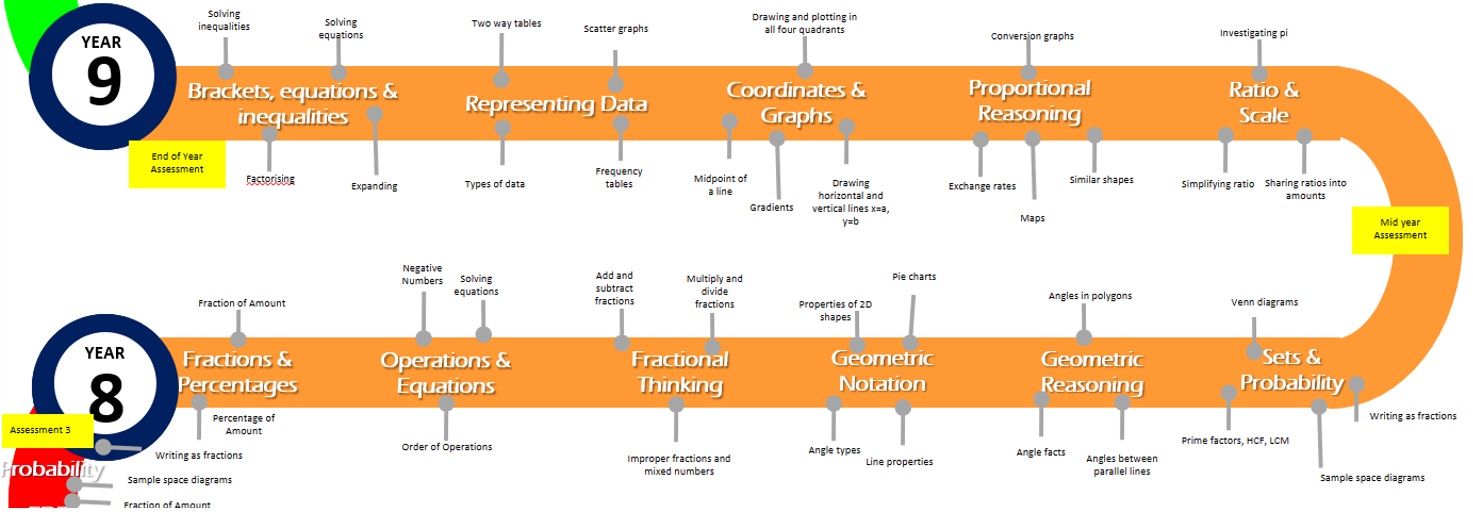KS3 Mathematics
The Mathematics Department at Rhosnesni consists of 8 enthusiastic subject specialists with a drive and passion to create confident and capable mathematicians
Learning Manager Mrs E Topliss
Assistant Learning Manager Mrs A Ashley
Numeracy Coordinator Mr C Lewis
Teacher of Mathematics / Data Lead Mrs G Marubbi
Teacher of Mathematics Mrs C Rowlands
Teacher of Mathematics / Head of Year Mr T Clarke
Teacher of Mathematics Mrs A Angel
Teacher of Mathematics Miss B Curtis
Why is Mathematics Important?
Mathematical literacy is an individual’s capacity to identify and understand the role that mathematics plays in the world, to make well-founded judgements and to use and engage with mathematics in ways that meet the needs of that individual’s life as a constructive, concerned and reflective citizen. A numerate person is someone who can calculate accurately and effectively in a variety of contexts. A numerate person can also solve problems using logic.
This definition allows us to focus on improving numeracy skills and life outcomes for many people. It implies the essential skills needed for solving problems, processing information, making decisions and interpreting data. Being numerate is about appreciating number relationships and interpreting answers, and not just about doing calculations.
Mathematics at Key Stage 3
At KS3, students study a wide range of topics which begin to prepare them for their GCSE journey. They are grouped according to ability from the beginning of Year 7 and are assessed at key points throughout the year both within their classes and across the whole year groups. These assessments are used to identify areas for development which then can inform the teaching moving forward and address gaps in knowledge, skills and understanding.
We have 8 purpose-built classrooms all with interactive whiteboards and a suite of laptops to enrich the learning environment also including mini whiteboards, kinaesthetic resources and practical equipment.
Our more able pupils, in addition to challenge in lessons, are stretched by participating in the UK Maths Challenge with the opportunity to enter competitions promoting problem solving and team work and other mathematical enrichment activities. Pupils are also encouraged to complete our fortnightly Numeracy Challenges and participate in the weekly parallel challenges. We also participate in online webinars and finance workshops at key points throughout the year.
The four key areas of content to explore, the statements of what matters are:
The number system is used to represent and compare relationships between numbers and quantities.
Algebra uses symbol systems to express the structure of mathematical relationships.
Geometry focuses on relationships involving shape, space and position, and measurement focuses on quantifying phenomena in the physical world.
Statistics represent data, probability models chance, and both support informed inferences and decisions.
Pupils progress in maths will be assessed through five key areas:
-
Conceptual Understanding
-
Communication using symbols
-
Fluency
-
Logical Reasoning
-
Strategical Competence
In order to ensure that we are meeting the needs of pupils in these 5 key areas, we have reduced the content into one learning journey rather than repeating things in each year in order to allow for a more in depth approach to teaching for knowledge, skills and understanding. Each pupil will be on their own learning journey, and this table and flow chart below will give you a flavour of some of the topics that will be taught at an appropriate level to each pupil:
YEAR 7


YEAR 8




